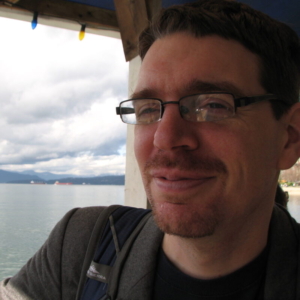Listen to William Smith on FreshEd:
Global Governance & Education
by William C. Smith
Senior Lecturer
University of Edinburgh
FreshEd has been a great space where leading researchers synthesize current events and complex concepts in a way that aids audience understanding. For this reason, FreshEd podcasts have been increasingly used as instructional resources, including at the University of Edinburgh. Through my list of recommendations, I wanted to use this opportunity to identify and reflect on podcasts for my forthcoming course, ‘Global Governance and Education’, in our new Masters in Comparative Education and International Development programme.
Global governance has gained prominence with the increased number and authority of international and non-governmental organizations in the later half of the 20th century. Large multi-lateral and international organizations play a key role in shaping national policy and global discourse by working as norm-setters and knowledge brokers.
Three FreshEd podcasts help us better understand the history and goals of these primary actors. Maren Elfert discusses the history and relationship between UNESCO, the World Bank, and Educational Development. Interestingly, while the World Bank and UNESCO are often seen as at odds with each other, for decades there were attempts to work together. Elfert points out the key turning points where the World Bank shifted their attention from funder to a recognized authority in education, which has increased the influence of economists in the field. Christian Ydesen discusses another key player in the OECD’s Past, Present, and Future. Ydesen reminds us that education was not an original aim of the OECD. Instead, over the last 30 years, the organization has used its technical knowledge and skills to exert ‘soft governance’ in education, using PISA and other large-scale surveys to influence policy and reinforce governing by numbers. Finally, Francine Menashy introduces us to the Global Partnership for Education, sharing how the Partnership came about from the World Bank’s Fast Track Initiative, its relationship with the World Bank, and the challenges of agreeing on contentious issues, such as support for private education. These three podcasts provide an insider look at how the organization is structured, who has power and influence in the organization, and how the aims of the organization have changed over time.
Governance, however, is not limited to organizations but can be found in the global goals and agendas that exert power and authority over something or someone. Leon Tikly captures this in his podcast on Education for All as International Regime. Although formed by many powerful actors discussed above, the Education for All movement has taken on its own legitimacy. It is shaped by and helps shape global thinking in education through what Tikly recognizes as discursive power. Antonia Wulff highlights the challenges in coalescing around a global collective vision and the underlying power dynamics in creating the SDGs in her podcast Tensions Implementing SDG4. In some of her more recent work, Wulff has suggested that SDG 4 provides a “structure for global education governance” as it exerts influence on national policy and rhetoric, with varying levels of success.
March 1, 2022








